Easy Ways to Remove Rust from Drill Bits

Drill bits are indispensable tools in any workshop or garage, but over time they can become rusted and dull, making them less effective and more difficult to use. Luckily, there are several easy ways to remove rust from drill bits and restore them to their original condition. Whether you have a set of high-quality drill bits or just a few old ones lying around, these methods will help you get rid of rust and extend the life of your tools.
One of the simplest and most effective methods to remove rust from drill bits is by soaking them in vinegar. Vinegar is an acidic solution that helps break down and dissolve the rust. Fill a container with enough vinegar to submerge the drill bits completely, and let them soak for several hours or overnight. After soaking, scrub the drill bits with a wire brush or a toothbrush to remove any remaining rust. Rinse the bits with clean water and dry them thoroughly before using or storing them.
If you don’t have vinegar on hand, another option is to use a solution of lemon juice and salt. Mix equal parts lemon juice and salt to create a paste and apply it to the rusted areas of the drill bits. Let the paste sit for about 30 minutes, then scrub the bits with a brush or a cloth. Rinse with water and dry the drill bits completely. This method can be effective for light to moderate rust and is especially useful for removing rust in hard-to-reach areas.
A third option for removing rust from drill bits is using a rust dissolver or penetrating oil. These products are specifically designed to loosen and dissolve rust, making it easier to remove. Apply the rust dissolver or penetrating oil to the rusted areas of the drill bits and let it sit for the recommended amount of time. Use a wire brush or a toothbrush to scrub away the rust, and rinse the bits with water. Be sure to follow the manufacturer’s instructions for the specific product you use.
Remember, prevention is key to keeping your drill bits rust-free. Store your drill bits in a dry area and clean them after each use to remove any moisture and debris that can cause rust. Applying a light coat of oil or lubricant to the bits can also help prevent rust formation. By following these easy methods and practicing regular maintenance, you can keep your drill bits in top condition and ensure they last for years to come.
Understanding Rust on Drill Bits
Drill bits are commonly used to create holes in various materials, such as wood, metal, and concrete. Over time, drill bits can develop rust, which can affect their performance and longevity. Rust is a form of corrosion that occurs when iron or steel comes into contact with oxygen and moisture. It can weaken the drill bit and cause it to become dull, making it less effective in drilling holes.
Causes of Rust on Drill Bits
There are several factors that can contribute to the development of rust on drill bits:
- Exposure to moisture: Drill bits that are not properly stored or exposed to humid environments can quickly develop rust.
- Inadequate cleaning: Failure to clean drill bits after use can lead to the accumulation of debris and moisture, promoting rust formation.
- Chemical reactions: Certain materials used in drilling processes, such as acids or certain types of wood, can cause chemical reactions that accelerate rust formation.
Effects of Rust on Drill Bits
Rust can have several negative effects on drill bits:
- Reduced efficiency: Rust can cause the drill bit to become dull and less effective in cutting through materials.
- Increased friction: Rust can create additional friction between the drill bit and the material being drilled, leading to overheating and potential damage to the drill bit or the material.
- Shortened lifespan: Continuous exposure to rust can weaken the drill bit, causing it to break or wear out more quickly.
Preventing and Removing Rust on Drill Bits
To prevent rust formation on drill bits, it is important to take proper care and maintenance measures:
- Store drill bits in a dry location: Keep drill bits in a clean and dry environment to minimize the risk of rust formation.
- Clean drill bits after use: Use a brush or cloth to remove any debris or moisture from the drill bits after each use.
- Apply a rust inhibitor: Consider applying a rust inhibitor or a thin layer of oil on the drill bits to provide a protective barrier against moisture.
If rust has already developed on drill bits, it can be removed using various methods:
- Wire brush: Gently scrub the surface of the drill bit with a wire brush to remove rust.
- Vinegar soak: Soak the rusted drill bits in vinegar for a few hours, then scrub off the rust using a brush or cloth.
- Rust dissolver chemicals: There are rust dissolver chemicals available in the market that can be used to remove rust from drill bits.
Conclusion
Rust can significantly impact the performance and lifespan of drill bits. Understanding the causes and effects of rust on drill bits is important to prevent and address rust-related issues. By following proper care and maintenance practices, drill bits can be kept rust-free and in optimal condition for long-lasting performance.
Preventing Rust on Drill Bits
Drill bits are essential tools for any handyman or DIY enthusiast. They are subjected to various conditions and substances that can lead to rust formation, which can degrade their performance and lifespan. To prevent rust on drill bits, consider the following measures:
1. Keep Drill Bits Dry
Moisture is one of the main culprits behind rust formation. After using drill bits, make sure to wipe them clean and dry using a dry cloth or towel. Additionally, avoid storing drill bits in damp areas or exposing them to water.
2. Apply a Protective Coating
Applying a protective coating to your drill bits can help inhibit rust formation. You can use a corrosion-resistant spray or anti-rust solution to create a barrier between the drill bits and moisture. Be sure to follow the manufacturer’s instructions when applying the coating.
3. Store Drill Bits Properly
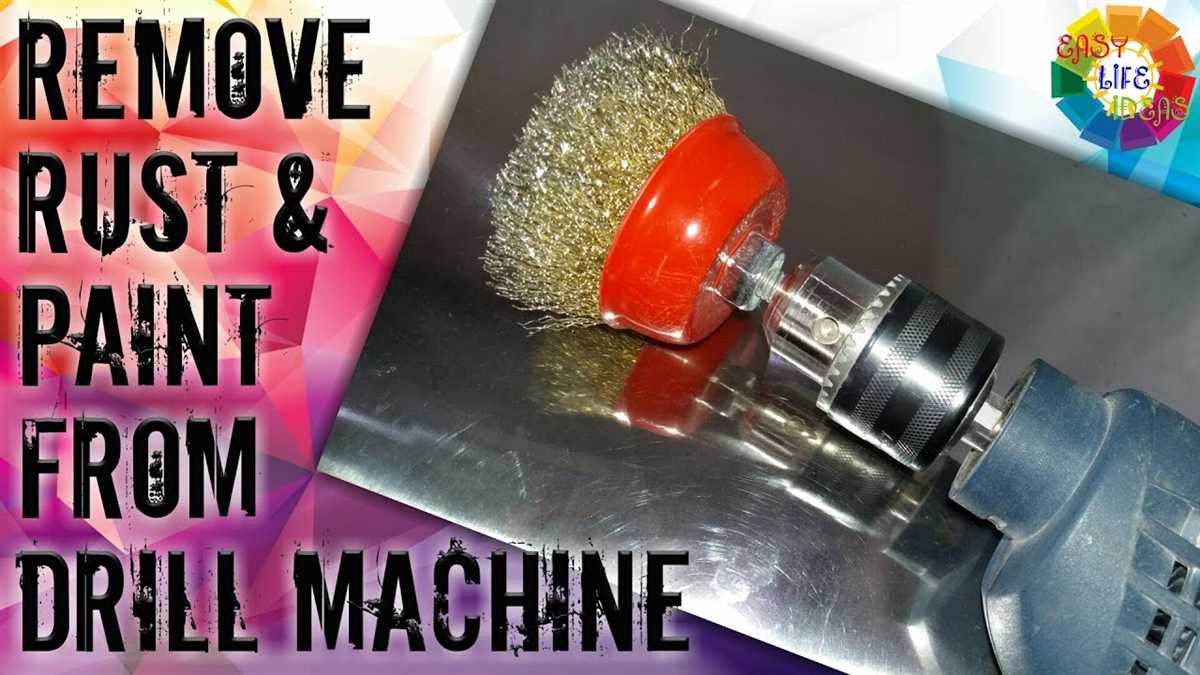
Proper storage is crucial to preventing rust on drill bits. Store them in a dry and well-ventilated area, away from moisture and humidity. Consider using a toolbox or a designated storage container to keep them organized and protected.
4. Remove Debris and Residue
After each use, clean drill bits thoroughly to remove any debris or residue that may lead to rust formation. Use a wire brush or a cloth to scrub away any dirt or grime. Applying a small amount of oil can also help prevent rust.
5. Inspect Drill Bits Regularly
Regularly inspect drill bits for any signs of rust or damage. If you notice any rust spots, address them immediately by cleaning, drying, and applying a protective coating. Replace any severely rusted or damaged drill bits.
By following these preventative measures, you can prolong the lifespan of your drill bits and ensure their optimal performance.
Using Vinegar to Remove Rust from Drill Bits
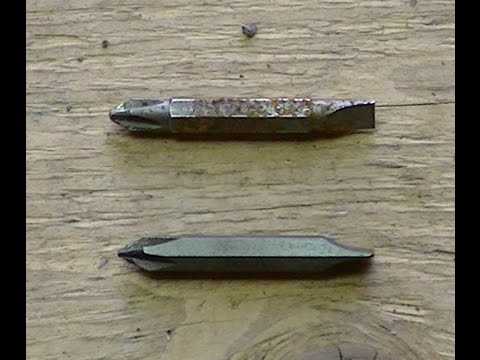
Vinegar is a versatile household product that can be used for many cleaning and maintenance tasks. One of its lesser-known uses is removing rust from drill bits. The acidity of vinegar helps to break down the rust and make it easier to remove.

Materials Needed:
- White distilled vinegar
- Bowl or container
- Water
- Brush or toothbrush
- Soft cloth
- Protective gloves
Instructions:
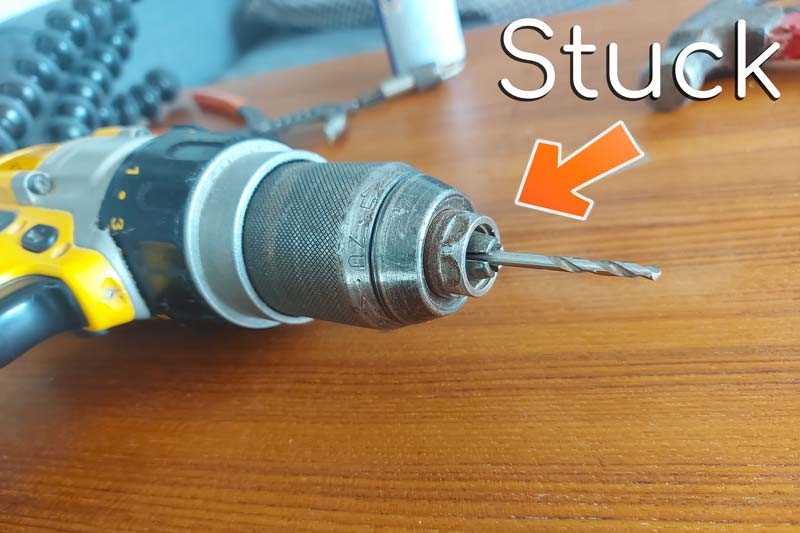
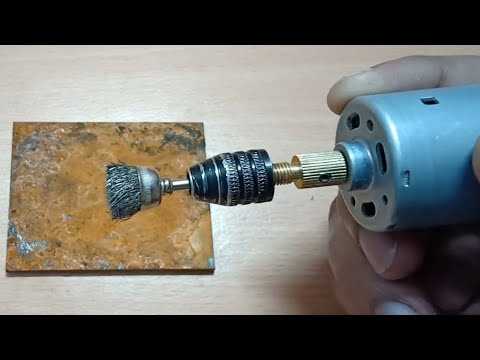
- Fill a bowl or container with enough vinegar to fully submerge the rusted drill bits.
- Place the drill bits into the vinegar, ensuring they are completely covered.
- Allow the drill bits to soak in the vinegar for at least 30 minutes. For more severe rust, you can leave them overnight.
- Remove the drill bits from the vinegar and scrub them gently with a brush or toothbrush to loosen any remaining rust.
- Rinse the drill bits with water to remove any vinegar residue.
- Dry the drill bits thoroughly with a soft cloth to prevent further rusting.
Note: It is important to wear protective gloves when working with vinegar to protect your skin.
Using vinegar to remove rust from drill bits is a cost-effective and easy method. However, if the rust is extensive or the drill bits are heavily damaged, it may be necessary to replace them.
Applying Lemon Juice for Removing Rust from Drill Bits
Rust can be a common issue for drill bits, as exposure to moisture and oxygen can cause the metal to corrode over time. If you notice rust on your drill bits, it’s important to remove it in order to maintain their effectiveness. One easy and natural solution for removing rust from drill bits is to use lemon juice.

Benefits of Using Lemon Juice
- Lemon juice is an acidic substance that can help dissolve rust. The citric acid in lemon juice works to break down the rust and make it easier to remove.
- Using lemon juice is a natural and eco-friendly alternative to chemical rust removers, which often contain harsh chemicals that can be toxic and harmful to the environment.
- Lemon juice is readily available and inexpensive, making it an easy and affordable solution for removing rust from drill bits.
Steps to Remove Rust with Lemon Juice
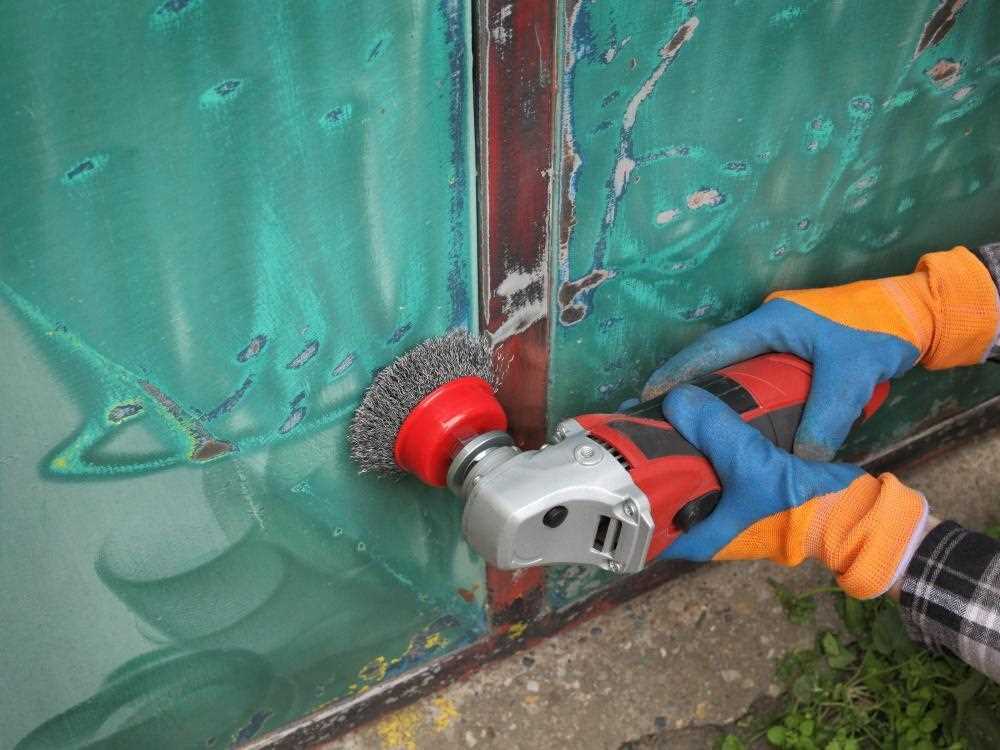
- Start by squeezing fresh lemon juice into a bowl or container. Alternatively, you can use bottled lemon juice if you don’t have fresh lemons on hand.
- Submerge the rusty drill bits in the lemon juice, making sure they are fully covered. Leave them to soak for about 15-30 minutes. The acidity of the lemon juice will start to dissolve the rust during this time.
- After soaking, use a scrub brush or old toothbrush to gently scrub away the rust from the drill bits. The rust should come off easily due to the acid in the lemon juice.
- Once the rust is removed, rinse the drill bits with water to remove any remaining lemon juice residue.
- Dry the drill bits thoroughly to prevent future rusting. You can use a clean towel or let them air dry.
Preventive Measures
To prevent rust from forming on your drill bits in the future, it’s important to store them properly. Keep your drill bits in a dry place, away from moisture and humidity. If possible, store them in airtight containers or use a rust-preventative spray to provide an extra layer of protection.
Regular maintenance and cleaning of your drill bits can also help prevent rust. After each use, wipe them down with a clean, dry cloth to remove any moisture or debris. This will help prolong the life of your drill bits and keep them in good working condition.
| Benefits | Steps | Preventive Measures |
|---|---|---|
| Acidic nature dissolves rust | Squeeze lemon juice into a container | Store drill bits in a dry place |
| Natural and eco-friendly | Soak drill bits in lemon juice | Wipe down after each use |
| Readily available and affordable | Scrub rust away with a brush | Use rust-preventative spray if possible |
Scrubbing with Baking Soda and Water
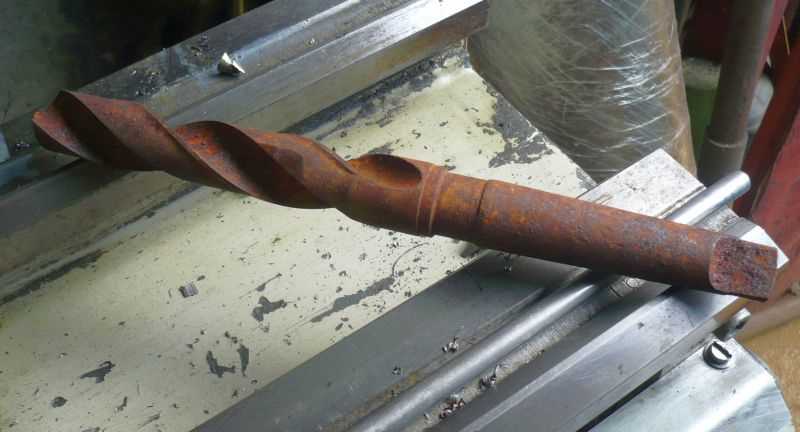
If your drill bits have light rust or surface stains, you can easily remove them by scrubbing with a mixture of baking soda and water. This method is effective and affordable, using common household items.
Step 1: Prepare the mixture
Start by mixing baking soda and water to create a paste. The consistency should be thick enough to stick to the surface of the drill bit.
Step 2: Apply the paste
Take a small amount of the baking soda paste and apply it to the rusted areas of the drill bit. Use your fingers or a soft brush to spread the paste evenly across the surface.
Step 3: Scrub the rust
Using a soft brush or sponge, gently scrub the rusted areas of the drill bit in a circular motion. Apply a bit of pressure, but be careful not to damage the surface of the bit.
Step 4: Rinse and dry
Once you have scrubbed all the rusted areas, rinse the drill bit thoroughly with clean water to remove any remaining baking soda residue. Dry the bit using a clean towel or let it air dry.
Step 5: Apply a protective coating
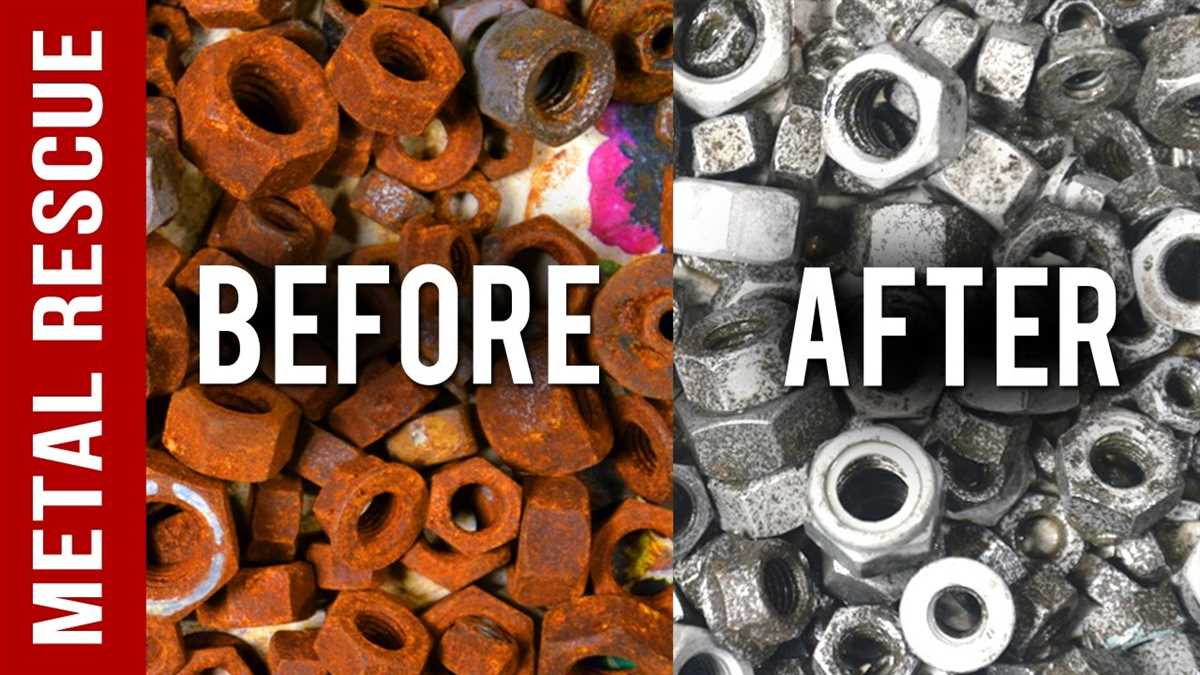
To prevent future rusting, you can apply a thin layer of oil or a rust inhibitor to the cleaned drill bit. This will create a barrier and help keep the bit in good condition.
Note: Scrubbing with baking soda and water is a gentle method that is suitable for removing light rust. If your drill bits have heavy rust or are severely damaged, you may need to use a more aggressive method or consider replacing the bits.
Soaking in Coca-Cola for Rust Removal
One surprising household item that can be used to remove rust from drill bits is Coca-Cola. Coca-Cola is a carbonated beverage that contains phosphoric acid, which has rust-dissolving properties. Here is a step-by-step guide on how to use Coca-Cola to remove rust from your drill bits:
Materials Needed:
- Drill bits with rust
- Coca-Cola (room temperature)
- Plastic container or bowl
- Plastic gloves
- Soft bristle brush
- Paper towels
Instructions:
- Start by putting on your plastic gloves to protect your hands from the phosphoric acid in Coca-Cola.
- Pour enough Coca-Cola into the plastic container or bowl to fully submerge the rusty drill bits.
- Place the drill bits in the Coca-Cola, making sure they are completely covered.
- Let the drill bits soak in the Coca-Cola for at least one hour. You can also choose to leave them overnight for better results.
Note: Make sure to keep the container in a well-ventilated area, as the Coca-Cola may produce a strong odor.
- After the soaking time is complete, take out the drill bits from the Coca-Cola and rinse them thoroughly with water.
- Use a soft bristle brush to scrub off any remaining rust. You can also use an old toothbrush for this step.
- Rinse the drill bits again to remove any debris.
- Dry the drill bits thoroughly with paper towels to prevent any new rust from forming.
- Inspect the drill bits to see if all the rust has been removed. If there are still traces of rust, you can repeat the process or try a different rust removal method.
Using Coca-Cola to remove rust from drill bits is a simple and cost-effective method. However, it may not be as effective for severe rust. If your drill bits have extensive rust damage, it is recommended to consult a professional or consider replacing them.
Utilizing Rust Remover Products for Drill Bits
Drill bits are essential tools for various DIY projects and professional applications. However, over time, drill bits can develop rust and corrosion, reducing their effectiveness and lifespan. To restore drill bits to their optimal condition, rust remover products can be utilized.
1. Rust Remover Gels
Rust remover gels are highly effective in removing rust and corrosion from drill bits. These gels typically contain a combination of chemicals that work together to dissolve and eliminate rust. To utilize rust remover gels:
- Apply a thick layer of the gel to the rusted areas of the drill bit.
- Allow the gel to sit for the recommended duration specified by the manufacturer.
- Scrub the surface of the drill bit with a brush to remove loosened rust.
- Rinse the drill bit with water to remove any remaining gel and rust residue.
- Dry the drill bit thoroughly before use.
2. Rust Dissolving Solutions
Rust dissolving solutions are another effective option for removing rust from drill bits. These solutions work by chemically dissolving the rust, making it easy to wipe or rinse away. Here’s how to utilize rust dissolving solutions:
- Submerge the rusted drill bit in the rust dissolving solution.
- Leave the drill bit in the solution for the recommended duration specified by the manufacturer.
- Remove the drill bit from the solution and scrub it gently with a brush to remove loosened rust.
- Rinse the drill bit with water to wash away the solution and any remaining rust debris.
- Thoroughly dry the drill bit before using it.
3. Rust Inhibiting Sprays
Rust inhibiting sprays can be used as a preventative measure to protect drill bits from rusting in the first place. These sprays create a protective coating on the surface of the drill bit, preventing moisture and humidity from causing rust. To utilize rust inhibiting sprays:
- Clean the drill bit by wiping away any dirt or debris.
- Hold the can of rust inhibiting spray a few inches away from the drill bit.
- Evenly spray the drill bit, making sure to cover all surfaces.
- Allow the spray to dry completely before using the drill bit.
Utilizing rust remover products for drill bits is an effective way to prolong their lifespan and maintain their performance. It’s important to follow the instructions provided by the manufacturer for each rust remover product to ensure safe and effective use.
Maintenance Tips to Avoid Future Rust on Drill Bits
Clean and Dry
After each use, make sure to clean your drill bits thoroughly to remove any dirt, debris, or moisture that could promote rust. Use a wire brush or steel wool to gently scrub away any build-up on the surface of the bits. Once clean, dry them thoroughly with a clean cloth or towel.
Store in a Dry Place
Moisture is one of the main culprits when it comes to rust formation. Ensure that you store your drill bits in a dry place to prevent any exposure to moisture. Consider using a tool chest or a plastic container with a sealing lid to keep them protected from humidity.
Apply a Protective Coating
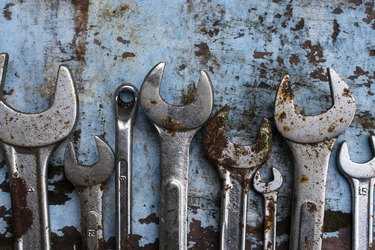
To further prevent rust from forming on your drill bits, you can apply a protective coating. One option is to use a thin coat of oil, such as mineral oil or lightweight machine oil, on the surface of the bits. This will help create a barrier against moisture and oxidation. Alternatively, you can use a rust-preventive spray specifically designed for tools.
Regular Inspections
Make it a habit to regularly inspect your drill bits for any signs of rust or corrosion. This will allow you to catch any potential issues early on and take the necessary steps to prevent further damage. If you notice any rust spots, use a wire brush or steel wool to remove them and apply a fresh coat of protective coating.
Use a Rust Inhibitor
Consider using a rust inhibitor when storing your drill bits for an extended period. These inhibitors come in various forms, such as rust-preventive paper or VCI (Volatile Corrosion Inhibitor) capsules. They release chemicals that create a rust-resistant atmosphere around your drill bits, helping to keep them rust-free.
Keep Away from Moisture Sources
Avoid exposing your drill bits to moisture sources whenever possible. Keep them away from damp environments, water, and corrosive materials. Additionally, be cautious when using your drill bits on wet surfaces as the water can accelerate the rusting process.
Rotate Bits
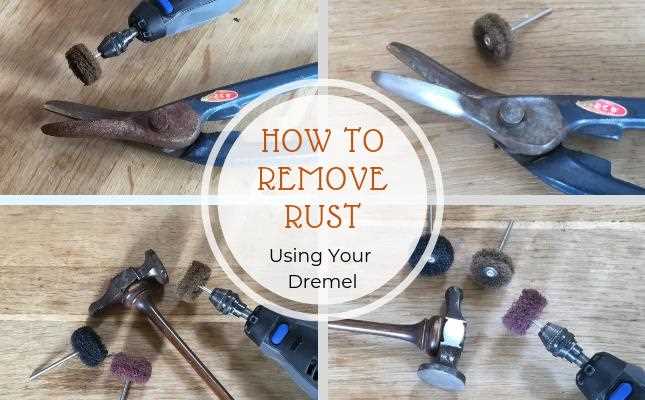
To ensure all your drill bits are being used regularly and not left unused for long periods, rotate them during your projects. This will prevent any single drill bit from sitting idle for too long and potentially rusting.
Replace Worn-Out Bits
If you notice that a particular drill bit is becoming rusty or corroded despite your maintenance efforts, it may be time to replace it. Worn-out bits are more susceptible to moisture penetration, so investing in a new bit is a wise choice to avoid future rusting issues.
Regular Maintenance Schedule
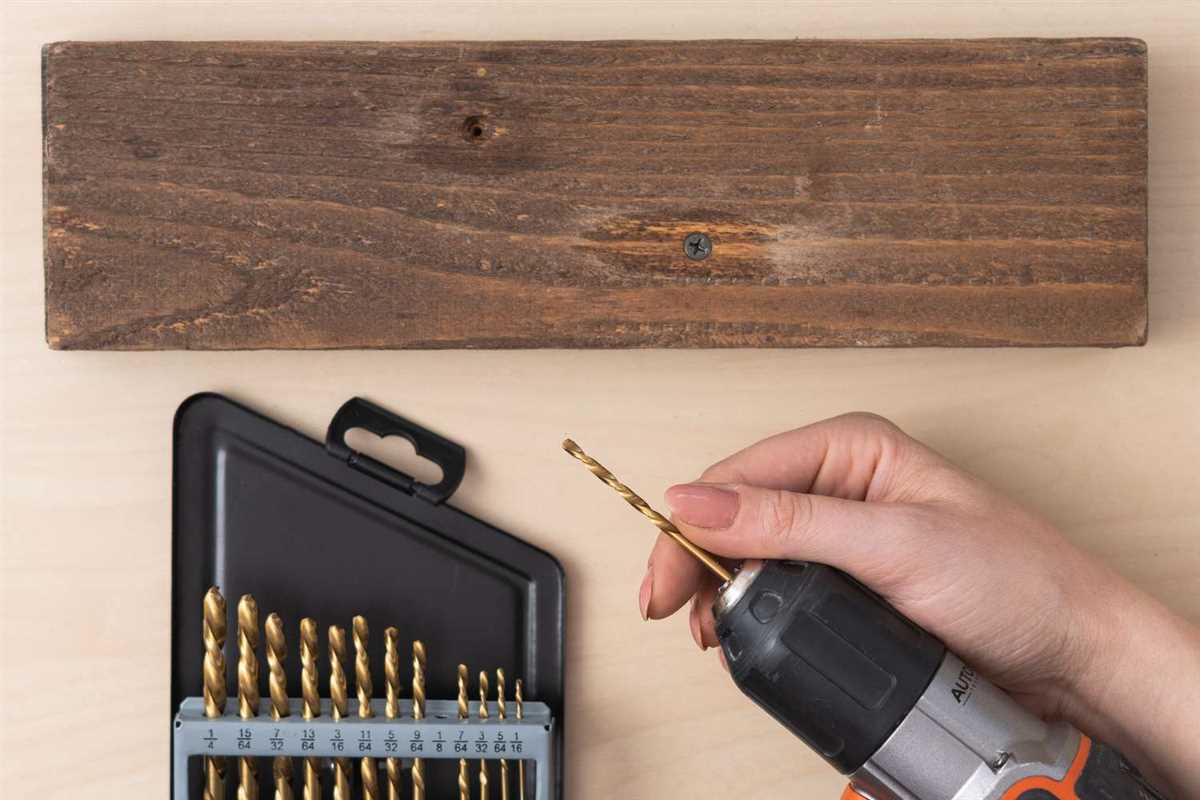
Finally, establish a regular maintenance schedule for your drill bits to ensure they stay in optimal condition. Set aside a specific time for cleaning, inspecting, and applying protective coatings to your drill bits. By making maintenance a routine, you can avoid future rust and prolong the life of your drill bits.
| Tips | Description |
|---|---|
| Clean and Dry | Thoroughly clean and dry your drill bits after each use. |
| Store in a Dry Place | Keep your drill bits in a dry environment to prevent moisture exposure. |
| Apply a Protective Coating | Use oil or rust-preventive spray to create a barrier against rust. |
| Regular Inspections | Regularly inspect your drill bits for any signs of rust or corrosion. |
| Use a Rust Inhibitor | Consider using rust-preventive paper or VCI capsules. |
| Keep Away from Moisture Sources | Avoid exposing your drill bits to moisture sources. |
| Rotate Bits | Rotate your drill bits to prevent any from sitting idle for too long. |
| Replace Worn-Out Bits | Replace any drill bits that are becoming rusty or corroded. |
| Regular Maintenance Schedule | Establish a regular maintenance routine for your drill bits. |
FAQ:
Can I use vinegar to remove rust from drill bits?
Yes, you can use vinegar to remove rust from drill bits. Simply soak the rusted drill bits in a container filled with vinegar for several hours or overnight. After soaking, use a wire brush or steel wool to scrub off the rust. Rinse the drill bits with water and dry thoroughly before using them again.
What other household items can be used to remove rust from drill bits?
Aside from vinegar, you can also use lemon juice or baking soda paste to remove rust from drill bits. Lemon juice can be applied directly to the rusted areas and left to sit for a few minutes before scrubbing off the rust. Baking soda paste, made by mixing baking soda with water, can be applied to the rusted bits and left for about an hour before scrubbing.
Is it important to remove rust from drill bits?
Yes, it is important to remove rust from drill bits. Rust can compromise the performance and efficiency of the drill bits. It can make them dull and less effective in drilling through materials. Removing rust from drill bits helps to prolong their lifespan and ensure they work properly.
What should I do if the rust on my drill bits is stubborn and hard to remove?
If the rust on your drill bits is stubborn and hard to remove, you can try using a rust dissolver or penetrating oil. These products are specifically designed to break down rust and make it easier to remove. Apply the rust dissolver or penetrating oil to the rusted areas and let it sit for the recommended amount of time before scrubbing off the rust.
Can I prevent rust from forming on my drill bits?
Yes, you can take steps to prevent rust from forming on your drill bits. After using the drill bits, make sure to clean them thoroughly and dry them completely. Apply a thin coat of oil or rust preventive spray to the drill bits before storing them. Store the drill bits in a dry and moisture-free environment to minimize the chances of rust formation.
Are there any commercial rust removal products available for drill bits?
Yes, there are several commercial rust removal products available for drill bits. These products are specifically formulated to effectively remove rust and restore the drill bits to their original condition. They can be found at hardware stores or online. Follow the instructions provided by the manufacturer when using these products.
Video:









